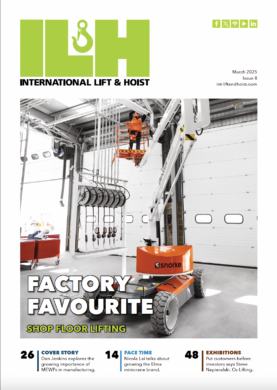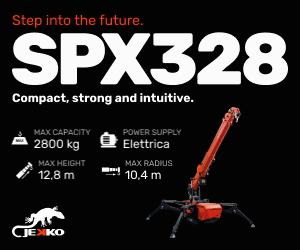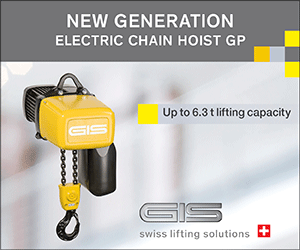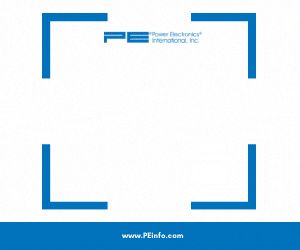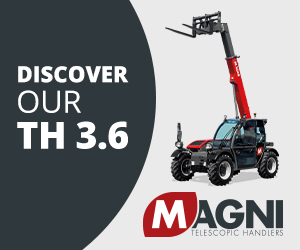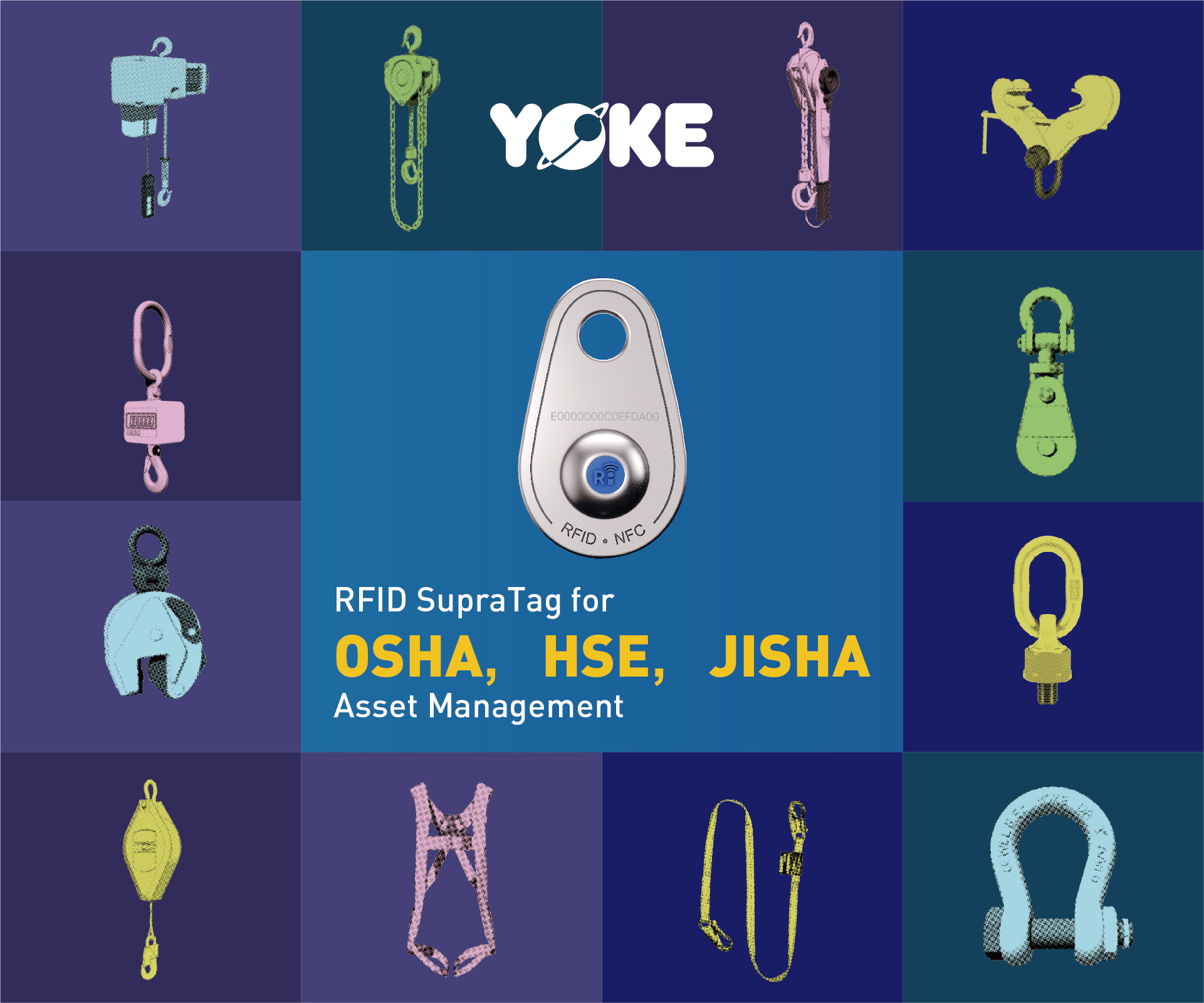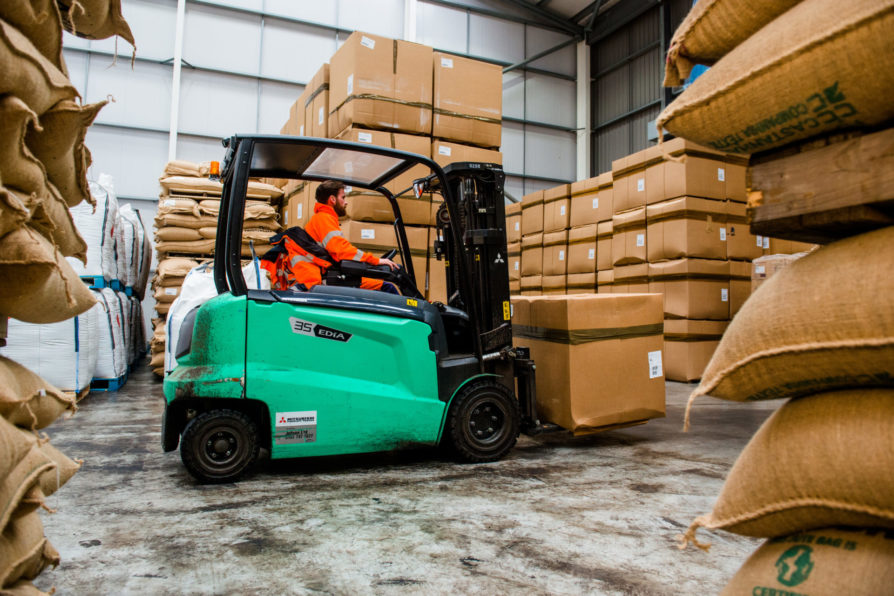)
Non-stop productivity with lithium-ion
CWT Commodities has transformed its operations after purchasing five new Mitsubishi EDiA forklift trucks all fitted with li-ion batteries.
The global company has its main UK site at Seaforth Docks in Liverpool, where ten warehouses are used for storing cocoa and coffee products. The materials arrive by ship from West Africa during the busy cocoa season which runs from November to April. After collecting the shipping containers from the quayside, CWT uses its forklift fleet to empty the contents and load them onto lorries to be delivered to some of the biggest blue-chip food and drink companies in the world.
Too much downtime
With a lot of product to move, CWT needs forklifts that are available any time within a 24 hour period to help meet delivery targets. The company had previously been using electric forklifts with wet-cell lead-acid batteries and had been experiencing multiple problems over the years.
“The lead-acid batteries we were using weren’t charging properly, or they took a long time to charge overnight, and our productivity was suffering as a result,” says Alex Turner, site manager at Seaforth Docks.
After speaking with local Mitsubishi Forklift Trucks dealer Jofson, Turner decided to upgrade the fleet and change to li-ion. The technology is known for its super-fast charging capabilities and reduced mains energy draw compared with conventional battery chargers.
Jofson sales director Kevin Gorman explains, “A li-ion battery doesn’t require any maintenance. You can also charge it more frequently and far quicker than a lead-acid battery without any damage to the battery. High-speed charging means there is no need for spare batteries which take up precious storage space and need specialist lifting equipment and labour to change. It’s ideal for a company like CWT that requires full equipment availability at all times.”
Machines for every task
CWT Commodities ordered three 3.5t electric EDiA EX FB35N 80-volt counterbalance trucks with li-ion batteries. Two of the trucks were specified with 5.5m masts to support high lifts, and the third was specially designed for de-stuffing shipping containers.
Each forklift was built to spec, with CWT selecting a number of additional features to support their operations. These included a load weight indicator which displays a weight via the dashboard to prevent overloading, an auto-tilt mast to support safe box stacking, a rear-mounted blue spotlight which alerts nearby pedestrians to the forklift, and automatic LED headlights to illuminate the inside of containers. CWT also ordered a fleet management system that could provide real-time information on truck location and uptime, thereby improving driver accountability.
Turner says, “The safety features on the trucks make things much easier for the operators because they can focus on the task and let the truck work automatically. Kevin had great knowledge about the trucks and li-ion, and the service department have been great at making any adjustments we wanted.”
CWT also ordered two 5t electric FB50N counterbalance forklifts, each with high-lift 6.5m masts. These larger models were suitable for the attachment of bespoke, quick-release rotating clamps used for decanting boxes of cocoa onto lorries for onward delivery.
Gorman adds, “CWT needed trucks that were capable of doing lots of different things on site. The 3.5-tonne Mitsubishi EDiA trucks are great for everyday tasks and have 4-wheel steering for a tight turning radius, which is ideal for working in busy warehouses. The larger models can be used with either a rotating clamp or with forks and sideshift, creating dual-purpose machines that provide more flexibility for operations.”
Always ready to go
The ability to charge li-ion batteries quickly means trucks are ready when they’re needed, allowing CWT to hit more targets and vastly improve productivity. The company has even been able to save money by no longer relying on extra diesel trucks, which were previously used to supplement the fleet when the old batteries failed.
Turner explains, “There is far less downtime now. We used to only be able to charge batteries at the end of every shift, but now we can put a truck on charge during our one-hour lunchbreak and get 90% battery power, which is great. Then we can put them on again after the shift knowing they’ll be fully charged in no time, ready to use first thing in the morning.
“In the past we were getting complaints from yard staff all the time in regard to batteries, but now we don’t have any problems. Everyone is much happier with the li-ion.”
Since delivery, Jofson has kept regular contact with CWT to ensure that the trucks are performing to the required standard.
“Reliability was the biggest thing we needed, and we’ve got that now,” says Turner. “Everything end-to-end, from sales to service, is working really well for us. We required a high level of commitment from Jofson and they’re great at making sure that what the sales team promise, the service team deliver. I’m looking forward to a continued partnership between CWT and Jofson.”



